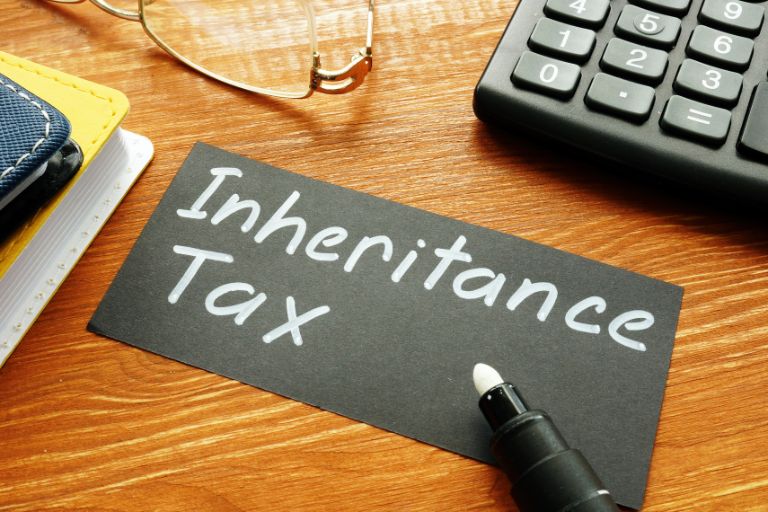Welcome, dear reader, to the wild and wacky world of inheritance tax planning. Yes, you read that right. We’re about to embark on a journey that’s as thrilling as a roller coaster ride, as mysterious as a Sherlock Holmes novel, and as hilarious as a stand-up comedy show. Buckle up, because we’re diving into the abyss of tax codes, exemptions, and deductions!
Before we begin, let’s clarify one thing: we’re not tax advisors. We’re more like your friendly neighborhood tour guides, showing you around the labyrinth of inheritance tax planning. We’re here to make this complex topic as digestible as your grandma’s apple pie. So, let’s get started, shall we?
What is Inheritance Tax?
Imagine you’re a pirate, and you’ve just found a treasure chest full of gold coins. But wait! Before you can start spending your newfound wealth, a parrot swoops down and takes a chunk of it. That’s essentially what inheritance tax is – it’s the parrot taking a share of your treasure, or in this case, your inheritance.

More formally, inheritance tax is a tax that’s levied on the estate (property, money, and possessions) of someone who’s passed away. It’s like a final farewell gift to the government. But don’t worry, there are ways to reduce this farewell gift, and that’s where tax planning comes into play.
Who Pays Inheritance Tax?
Now, you might be thinking, “I’m not the one who’s passed away, so why should I pay the tax?” Well, the tax is usually paid by the person who’s inheriting the estate. It’s like a membership fee for joining the ‘inheritance club’. But remember, not all inheritances are taxed. There are exemptions and thresholds, which we’ll discuss later.
Also, it’s important to note that inheritance tax is not the same in every country. It’s like pizza – the basic concept is the same, but the toppings can vary widely. So, always check the rules in your specific country.
How is Inheritance Tax Calculated?
Calculating inheritance tax is like solving a puzzle. You need to know the value of the estate, the tax-free threshold, and any applicable exemptions or reliefs. It’s a bit like doing a Sudoku puzzle, but with more numbers and less fun.
Generally, the tax is calculated as a percentage of the estate’s value that exceeds the tax-free threshold. But don’t worry, we’ll break this down in more detail later.
Inheritance Tax Planning
Now, let’s move on to the fun part – tax planning. This is where you get to play detective, looking for clues and strategies to reduce your inheritance tax bill. It’s like a game of hide and seek, but with your money.
Remember, tax planning is not about evading tax. That’s illegal and could land you in hot water. It’s about understanding the rules and using them to your advantage. It’s like playing chess – you need to know the rules to win the game.
Understanding Exemptions and Reliefs
Exemptions and reliefs are like the secret weapons in your tax planning arsenal. They can significantly reduce your inheritance tax bill, so it’s important to understand them.
There are several types of exemptions and reliefs, such as spouse or civil partner exemption, charity exemption, and business relief. Each of these has specific criteria and rules, so it’s important to understand them fully.
Gifts and the Seven Year Rule
Gifts are another way to reduce your inheritance tax bill. But beware, there’s a catch – the seven year rule. This rule states that if you give a gift and then live for seven more years, the gift is exempt from inheritance tax. It’s like a game of ‘Beat the Clock’, but with higher stakes.
However, if you don’t survive the seven years, the gift could be subject to inheritance tax. But don’t worry, there are ways to mitigate this, such as taper relief. Again, it’s important to understand the rules fully before making any decisions.
Seeking Professional Advice
While we’ve tried to make this guide as hilarious and informative as possible, it’s always a good idea to seek professional advice when it comes to tax planning. It’s like going to a doctor when you’re sick – you wouldn’t rely solely on a comedy sketch for medical advice, would you?
A tax advisor can provide personalized advice based on your specific circumstances. They can help you navigate the complex world of inheritance tax planning, ensuring you make the most of your exemptions and reliefs.
Choosing a Tax Advisor
Choosing a tax advisor is like choosing a life partner – you want someone who’s knowledgeable, trustworthy, and understands your needs. It’s not a decision to be taken lightly.
When choosing a tax advisor, consider their qualifications, experience, and reputation. Also, make sure they specialize in inheritance tax planning. After all, you wouldn’t go to a dentist for a heart problem, would you?
Working with a Tax Advisor
Working with a tax advisor is like having a personal trainer for your finances. They can guide you, motivate you, and help you achieve your goals. But remember, you need to be open and honest with them. They can’t help you if they don’t know the full picture.
Also, don’t be afraid to ask questions. A good tax advisor will be happy to explain things in a way that you understand. After all, it’s your money and your future at stake.
Conclusion
So, there you have it – a hilarious guide to inheritance tax planning. We hope you’ve found it informative, entertaining, and maybe even a little enlightening. Remember, tax planning is not a one-size-fits-all solution. It’s a personalized strategy that should be tailored to your specific needs and circumstances.
And remember, while inheritance tax planning might seem daunting, it doesn’t have to be. With the right knowledge and advice, you can navigate the labyrinth of tax codes, exemptions, and reliefs with ease. So, go forth and conquer the world of inheritance tax planning. We believe in you!


